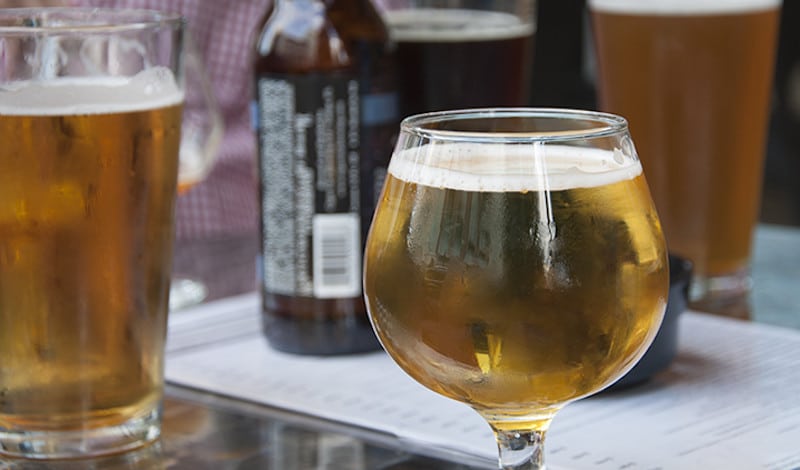STORY LINK / Washington, DC (June, 2020) – Brewers today are faced with two crises, COVID-19 and climate change, that are affecting the way beer is being consumed, valued, and produced. The crises pose particular threats to smaller manufacturers who must find ways to be sustainable and resilient while ensuring that they still turn a profit.
Like most other businesses in the service industry, breweries have been forced to respond to the pandemic by closing their doors to in-room tap sales, which has caused a steady drop in customers. The other crisis is less visible.
Beer, which is a resource-heavy product, depends heavily on water. Approximately seven barrels of water are needed to brew one barrel of beer. When factoring in the amount of water that is used in agricultural processes to grow the hops, malt, and barley that beer requires, the amount skyrockets to about 11-40 barrels of water for a single barrel of beer.
Chris Swersey, a supply chain specialist and competition manager for the Brewers Association, a nonprofit trade association of American craft brewers, said that these crops are shifting. Barley, for instance, “is starting to concentrate more and more north of the border,” Swersey said, as climate change has made the crop harder to grow in the US.
You can read the full story at Greater Greater Washington here.
Related: How Will Climate Change Affect Craft Brewers?

